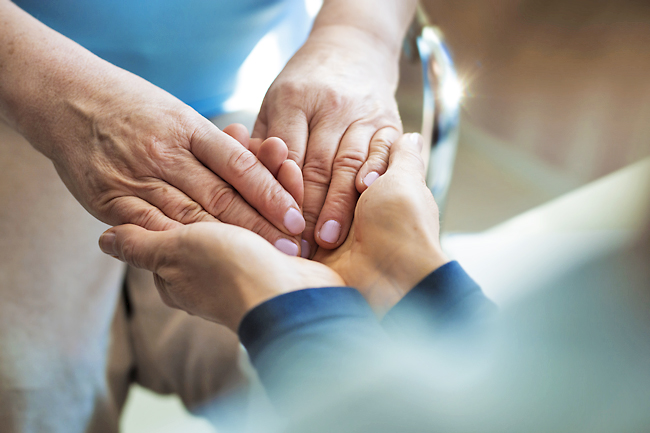Contributed by Nur Azirah @ Nora Haji Mohd Yahya,
Medical Social Worker, Medical Social Work Department of Pantai Jerudong Specialist Centre
When faced with a life-altering medical condition such as a stroke, it can take a huge toll on the emotional and social well-being of the stroke patient, their family and friends.
It is sometimes ignored that stroke victims require social rehabilitation and assistance to return to work or seek employment, manage their finances, stay in touch with family and friends, and access social benefits.
This is where medical social workers come in assisting patients in adjusting to their condition and reintegrating into the society at the best functional, social, and economic level feasible.
This month marks the celebration of World Social Work Day, with the theme ‘Co-Building a New Eco-Social World: Leaving No One Behind’. This leads to a significant vision and action plan for developing new global values, policies, and practices that foster trust, security and confidence for people and the planet’s sustainability.
This reflects on how medical social workers bridge gaps in aiding patients and their families by providing assistance wherever and wherever possible.

At Pantai Jerudong Specialist Centre (PJSC), the Brunei Neuroscience Stroke and Rehabilitation Centre (BNSRC) receives an average of 39 stroke patients monthly, with about half of them referred to the Medical Social Work (MSW) Department. These patients encounter a range of socioeconomic challenges, including financial hardship, family conflict, the absence of a carer or family support, and domestic abuse, among many other issues.
Social work is frequently initiated during the acute phase of a stroke and continues long after the patient has been discharged from the hospital. In its broadest context, social work seeks to assist patients, their families and the acute or rehabilitation team in reaching individually defined goals. Medical social workers are part of a multidisciplinary team of allied health professionals that provide care to patients during the acute phase, inpatient rehabilitation, and outpatient rehabilitation.
Counselling, coordination with other services, provision of information (such as guidance on how to receive financial aid), and assistance with developing the patient care plan at home are examples of social work in a hospital setting.
The medical social worker’s responsibility is to assess, using evidence-based interventions, the areas where patients and their families are most in need of support. Through these approaches, emphasis is put on delivering patient-centred care.
Some stroke patients require assistance with their Activities of Daily Living (ADLs) or personal care necessities such as eating or feeding, bathing, dressing, and going out. The carer, who is commonly a family member or spouse, is the one who is mainly in charge of supporting a stroke patient at all phases.
Medical social workers are engaged in every stage of the process, from finding the carer and meeting the family to arranging the care plan. When there is family conflict or the absence of a carer, medical social workers collaborate with the patient’s family or friends to find a solution that allows the patient to safely return home with their care requirements addressed.
Stroke can occasionally result in a sudden loss of income for patients, either through job loss or the inability to continue self-employment (such as selling vegetables at the market). In some situations, there are family members who quit from their employment to care for the patient full-time. In circumstances where the patient was the primary breadwinner for the family, this loss has a significant impact on their ability to meet monthly expenses to provide for the needs of their family. As a result, the necessities of the stroke patient, such as milk powder, diaper supplies, medical equipment, and housing adjustments, become a substantial financial burden.
The support of government and non-government organisations is essential in addressing the issue of financial distress encountered by these individuals. When patients are unable to acquire medical equipment such as a hospital bed or wheelchair, medical social workers seek assistance from relevant authorities and organisations such as Brunei Islamic Religious Counci (MUIB), Community Development Department (JAPEM) and Yayasan Sultan Haji Hassanal Bolkiah (YSHHB). If they meet the referral criteria, these organisations will offer them a monthly supply of milk powder and diapers, easing the additional financial load on families.
Certain agencies are also in charge of skill-building programmes that enable people to work for themselves while living with a differently-abled individual.
Some patients require monthly financial aid upon having a compromised income, and medical social workers can assist by providing information and an explanatory discussion. Patients or their families are given information about special allowance for the differently abled, monthly welfare assistance (BKB), and work prospects so that they can approach the appropriate service providers on their own. In addition to financial aid, families are provided information about private caregivers or nursing services to care for patients upon returning home.
The public also can contribute to support patients and their families by providing supplies, milk powder, and diapers, as well as other daily essentials or assistance that might help relieve their challenges in their daily life. Any enquiries or concerns on helping the patients’ needs can be raised through the MSW Department of PJSC.
The main focus for medical social workers on these issues faced by patients and their families are their mental health and well-being. We continue to collaborate with patients and families throughout the course of post-stroke social rehabilitation through individual counselling and the development of therapeutic relationships.






